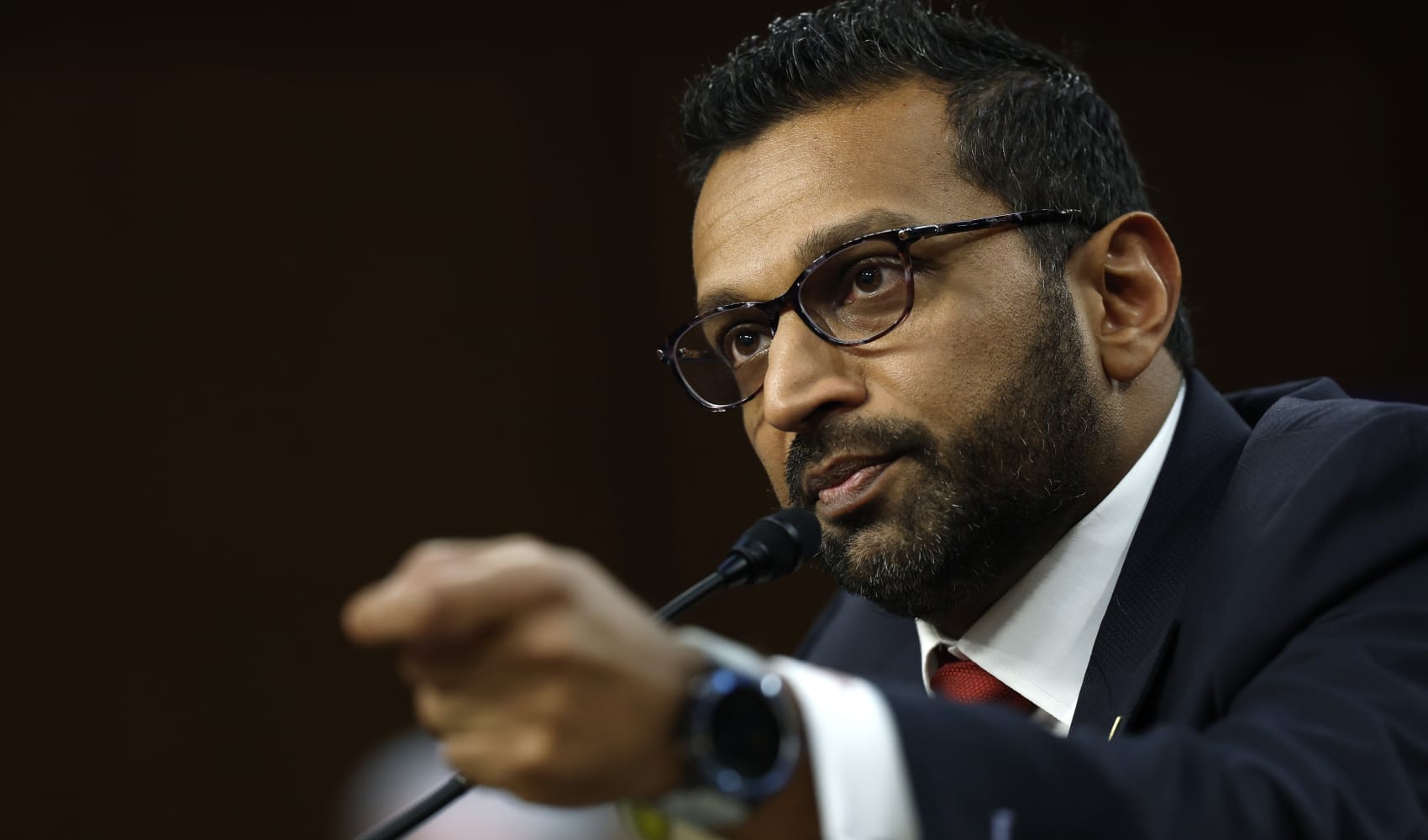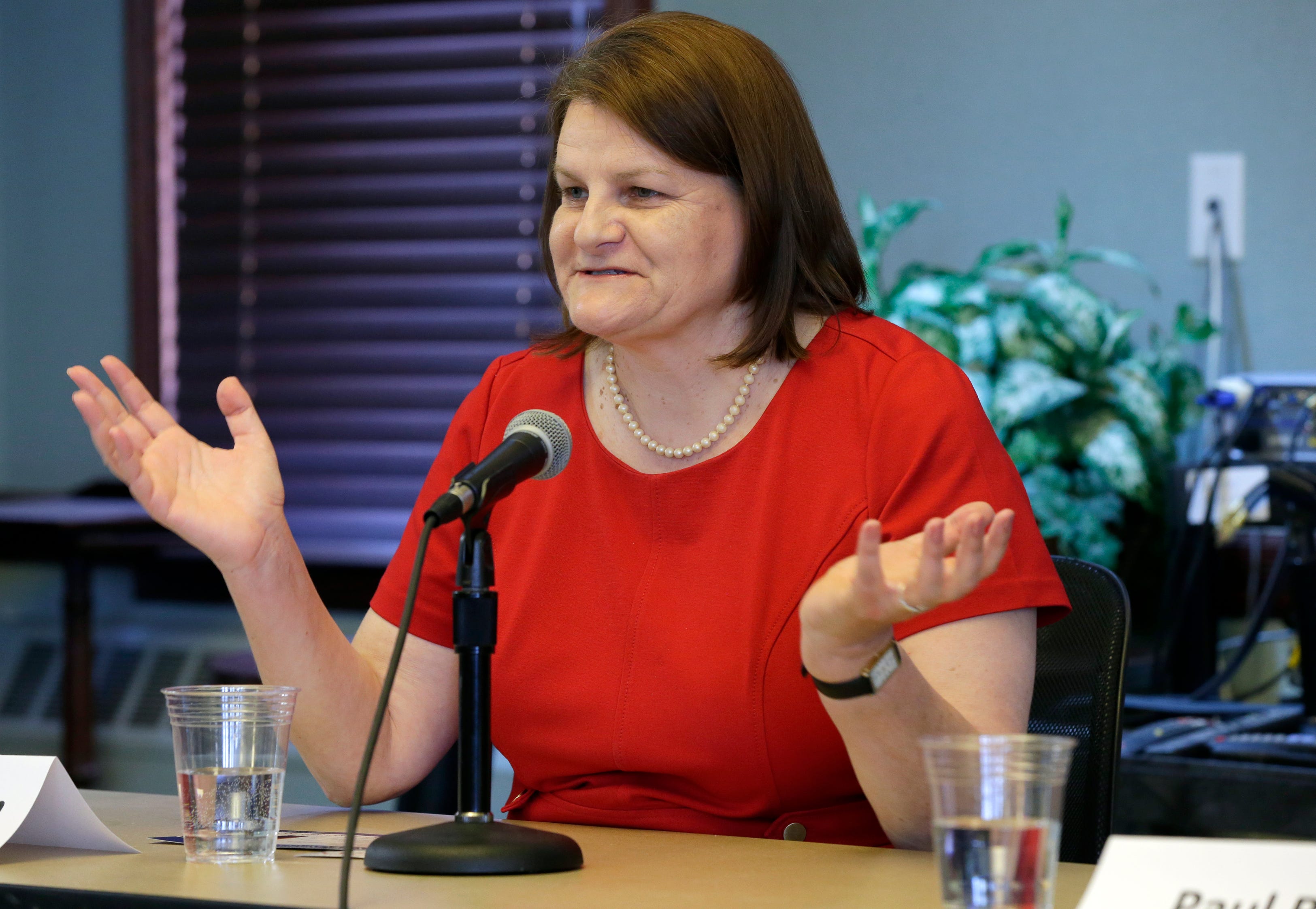Judge Arrested: Immigration Enforcement Escalation?
Judge Arrested: Trump Immigration Enforcement Intensifies?
Introduction: A Shocking Turn of Events
Wow. Just when you thought you'd seen it all, news breaks that Milwaukee Circuit Court Judge Hannah Dugan has been arrested! Accusations are flying that she obstructed justice by helping an undocumented immigrant evade arrest. This isn't just any legal story; it raises some serious questions about the direction of immigration enforcement. Is this an isolated incident, or does it signal a broader crackdown? Let's dive into the details of this unfolding situation.
The Arrest: What We Know So Far
According to initial reports, federal agents took Judge Dugan into custody on Friday morning. FBI Director Kash Patel initially announced the arrest on X (formerly Twitter), stating that she's been charged with obstruction. This is a bold move, isn't it? Imagine the implications of arresting a sitting judge! The official account claims she assisted an undocumented immigrant in avoiding arrest after they appeared in her courtroom.
The Deleted Tweet: A Mystery Unfolds
Adding another layer of intrigue, Patel's tweet was quickly deleted. Why? The FBI hasn't officially commented on the removal, leaving us to speculate. Was it a premature announcement? Did new information come to light? Perhaps it was a simple error. We'll have to wait and see.
The Confirmation: A Senior Official Speaks Out
Despite the disappearing tweet, a senior law enforcement official confirmed the arrest to NBC News. They stated that Judge Dugan was arrested around 8:30 a.m. local time in the parking lot of her courthouse. That's a pretty public place to be taken into custody, right?
The Allegations: A Closer Look
The core accusation is that Judge Dugan actively helped an undocumented immigrant evade arrest. But what does that actually *mean*? What actions did she take that constitute obstruction of justice? These are the questions everyone is asking.
Obstruction of Justice: Defining the Charge
Obstruction of justice is a serious charge, carrying potentially significant penalties. It typically involves interfering with an investigation or legal proceeding. Did Judge Dugan directly interfere with law enforcement, or did she simply provide advice or assistance? The specific details will be crucial in determining the validity of the charges.
The Immigrant's Case: What Were They In Court For?
Understanding the context of the undocumented immigrant's appearance in court is also important. What were they charged with? Was it a minor infraction, or a more serious crime? This information could shed light on Judge Dugan's alleged motives and the severity of the situation.
Kash Patel and the FBI: The Key Players
Kash Patel, the former Chief of Staff to the Acting United States Secretary of Defense under President Trump, is now an FBI Director, and his involvement adds another layer of complexity to this case. His background and political affiliations are sure to be scrutinized in the coming days. What impact will this have on the impartiality of the investigation?
FBI's Role: Maintaining Impartiality
The FBI's role in this investigation is critical. They must conduct a thorough and impartial investigation, free from political influence. The public's trust in the justice system depends on it.
Potential Implications: A Broader Crackdown?
This arrest raises concerns about a potential escalation of immigration enforcement efforts. Is the government targeting individuals who are perceived as sympathetic to undocumented immigrants? Is this a sign of things to come?
Legal and Ethical Questions: Rights and Responsibilities
The case also raises important legal and ethical questions. What are the responsibilities of judges in these situations? How do we balance the need for law enforcement with the rights of individuals? These are complex issues with no easy answers.
The Wisconsin Legal Community: Reactions and Concerns
The arrest of a judge is a significant event for the Wisconsin legal community. How are other judges and lawyers reacting to this news? What are their concerns about the potential impact on the judiciary?
Political Fallout: Polarization and Division
This case is likely to further polarize an already divided nation. Those who support stricter immigration enforcement will likely applaud the arrest, while those who advocate for more lenient policies will likely condemn it. Prepare for the political fallout.
Trump-Era Policies: Echoes of the Past
Many are questioning whether this arrest reflects a return to Trump-era immigration policies. His administration was known for its aggressive enforcement tactics, and this case could be seen as a continuation of that approach. Are we seeing a resurgence of those policies?
The Road Ahead: What to Expect
Judge Dugan is currently in custody, awaiting further legal proceedings. The investigation is ongoing, and more information is likely to emerge in the coming days and weeks. This is a developing story, and we'll be following it closely.
The Legal Process: Due Process and Fair Trial
It's important to remember that Judge Dugan is presumed innocent until proven guilty. She is entitled to due process and a fair trial. We must allow the legal system to work, regardless of our personal opinions.
Conclusion: A Turning Point?
The arrest of Judge Hannah Dugan is a shocking and significant event. It raises serious questions about the direction of immigration enforcement, the role of the FBI, and the potential for political influence in the justice system. Whether this is an isolated incident or a sign of a broader crackdown remains to be seen. The key takeaways are the seriousness of the obstruction charge, the controversial nature of immigration enforcement, and the potential for political ramifications. This is a story we will continue to watch closely.
Frequently Asked Questions (FAQs)
- What specific actions is Judge Dugan accused of taking to help the undocumented immigrant evade arrest? Details are still emerging, but the accusation centers around her allegedly assisting the individual in avoiding apprehension after appearing in her courtroom.
- Why was the FBI Director's initial tweet about the arrest deleted? The FBI has not yet provided an official explanation for the tweet's removal. Speculation ranges from premature announcement to potential errors in the information.
- What is the potential penalty for obstruction of justice in this case? The penalty for obstruction of justice can vary depending on the specific circumstances, but it typically includes fines and imprisonment. The exact penalties Judge Dugan faces will depend on the evidence presented.
- Is this case related to any broader policy changes regarding immigration enforcement? While it is too early to definitively say, this arrest has raised concerns among some that it may signal a renewed focus on stricter immigration enforcement policies.
- Where can I find the latest updates on this case? Reputable news sources like NBC News, the Associated Press, and Reuters will provide ongoing coverage of this developing story. Checking those sources regularly will provide you with the latest information.

